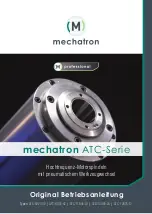
10
040106.04
Connection kit for fuel tanks
vetus®
Positioning
Install the tank in such a way that it is easily accessible for inspection.
The tank should always be installed above the maximum bilge water
level.
Also ensure that there is sufficient free space at the top of the tank
for the hose connection. This connection must be easily reached dur-
ing installation. For ventilation, the tank should have a free space of
about 1 cm (3/8”). from bulkheads or other tanks.
Make sure the tank has a sufficiently secure foundation on which to
install it and secure it properly.
The dimensions of the tank will increase a little when it is filled
.
Take this into account when fixing the tank.
Fix the tank securely with the fitting straps from the installation kit;
these will accommodate the expansion of the tank.
Fitting in sailing boats
When fitting remember that the filler hose must always be posi-
tioned on the same side of the boat as the tank.
This prevents too high a pressure from possibly occurring in the tank
when sailing heeled.
2 2 Cutting the hole for the connector lid
Position the connector lid on the top face of the tank. If a VETUS tank
is used, then it should be fitted with plug P on the top and the con-
nector lid should preferably be located so that plug P is removed
when the hole is cut.
Cut the hole in the tank and remove all burrs.
n
ote
!
Drill an exactly round hole using a hole saw (ø 114 mm, 4
1
/
2
”
diam ) This is essential in order to achieve proper sealing A
ø 114 mm hole saw is available from Vetus under art code
VSAW114
Clean the inside of the tank before fitting the connector lid.
P
ø 114 mm
(4
1
/
2
˝)
MIN. 135 mm
W
F
F
W
Distribute the tanks, and thus the weight, evenly over the ship (F =
Fuel, W = Water).
± 30 mm
70 mm
70 mm










































